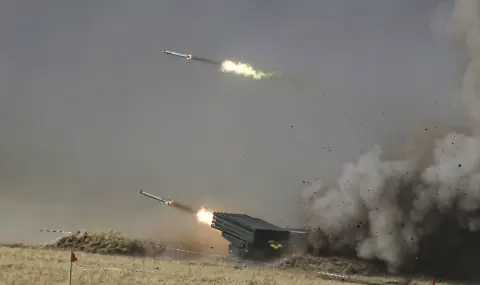Russia cannot take full advantage of one of its most effective weapons against Ukrainian forces advancing on its territory, according to a military strategy expert.
That's probably because Russia's systems aren't good enough to ensure it doesn't hit itself, he told Business Insider.
Russia is increasingly using planning bombs on Ukrainian territory. The bombs are equipped with guidance systems that allow them to be launched from long-range jets. They are hard to stop and Russia is making them more powerful: its latest model weighs 3 tons.
But Russia has not used the bombs on the same scale against Ukrainian forces that crossed the border into Russia earlier this month.
Mark Keynesian, a retired Marine Corps colonel and senior adviser at the Center for Strategic and International Studies, says Russia is not using air power or planning bombs extensively against Ukrainian forces in Kursk.
"I think this is a reflection of a weak air control system,”, he points out.
While the US and NATO "have very complex mechanisms" and "a very complex, well-trained system" between the planes and the control center to ensure they don't hit anything friendly, this is not the case for Russia.
The US is "pretty good at it. "The Russians are not," notes Keynesian.
According to him, Russia is able to use FAB en masse in Ukraine because the front is static and largely immobile, so Russia can get away with a weaker control system and less unintended damage.
Russia's relative caution in Kursk "is a reflection of their inability, their weakness, to use the air to support ground forces”.
Some use of planning bombs was recorded at Kursk, but not on the scale elsewhere. Ukraine's military said on Wednesday that Russia had launched 27 cluster bombs in the region; it is not clear whether this figure is total or for one day.
Either way, that's a much smaller number than what Russia has reportedly fired at targets on Ukrainian soil. Russia used 750 cluster bombs against Ukrainian cities and villages last week alone, Ukrainian President Volodymyr Zelensky said on Sunday.
It's also fewer than the 50 or so bombs that Russia reportedly fires daily at Ukraine's Sumy region, which neighbors Kursk.
"The Russians are hampered in one way in that they can't drop these fancy planning bombs in Kursk like they did in parts of Ukraine, especially on the eastern front, because it's obviously their own territory," said Rajan Menon, senior researcher at the Saltzman Institute for the Study of War and Peace at Columbia University.
"They will kill many people. Civilians", he says.
George Barros, a Russia-based military expert at the US-based Institute for the Study of War, told BI that Russia is not yet using the Kursk bombs "at scale".
Russia's attacks in Ukraine, notes Barros, "completely obliterate entire neighborhoods and cities in just days”.
"The Russians are categorically not doing this in Kursk,”, he added.
But as Ukraine continues its offensive operation, Russia's risk calculations may change.
Russia has dropped bombs on its territory and destroyed its own weapons since it began its invasion of Ukraine. This includes shooting down one's own fighters.
But these were relatively isolated incidents, not something that was happening as a result of a new strategy, such as the use of cluster bombs at Kursk.
Barros says Russia fears the "political considerations" that would come with strikes on its own territory.
Meanwhile, Ukraine began using cluster bombs against Russia in Kursk.
Zelensky said the invasion was intended to create a "buffer zone” to minimize Russia's ability to harm Ukraine.
However, military analysts told BI that Ukraine likely wants to stretch Russian forces and re-motivate its troops and allies.
According to Barros, it is not clear how the fast-moving operation will end. But so far it has been positive for Ukraine after months of agonizing static warfare.
In his words, the Ukrainians "are no longer stuck in the rut, where they do not have the initiative”.
Danger of self-destruction! Russia's military fears using one of its most powerful weapons against Ukrainians in Kursk
It is unclear how the fast-moving operation in Kursk Oblast will end, but so far everything is positive for Ukraine after months of agonizing static warfare
Aug 23, 2024 22:52 712
